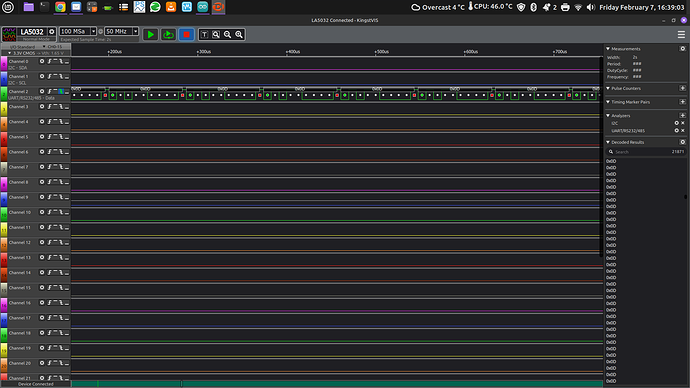Hi David ,
Could it be there’s a little bug in this function ?
It works well with all values I tested/used so far , except for (write-byte #x0a).
This emits 2 bytes on the serial port , first #x0d and followed by #x0a.
These happen to be the CR an LF control ascii characters.
Could you verify this please? I’ve helped myself so far by writing an ulisp extension in c using serial.Write , which works ok.
Kind regards,
Ronny

